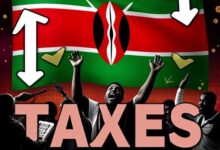African Gaming Renaissance: Exploring the Rise of iGaming in Africa

Africa has a rich and diverse gaming culture dating back to ancient times. From board games like Mancala and Senet to card games like Kariba and Klaberjass to dice games like Zara and Soro. Gaming has always been a form of entertainment, education, and socialization for Africans. iGaming Africa
However, in recent years, a new form of gaming has emerged on the Continent: iGaming. iGaming, or internet gaming, refers to any game that is played online, such as casino games, sports betting, lottery, bingo, poker, and esports.
Gaming is a booming industry worldwide, with revenues expected to reach $159.3 billion by 2024. But what makes Africa a unique and exciting market for iGaming? How has the Continent embraced this new form of digital entertainment? And what are the challenges and opportunities facing the gaming industry in Africa? The article will take a deeper look at the rise of gaming on the Continent to answer these questions and many more.
History of gaming in Africa.
Understanding the current gaming landscape in Africa entails exploring its historical gaming context. Across millennia, games have been intrinsic to African culture, with traces dating back to 3500 BC. These games embraced dual roles as sources of leisure and vehicles for transmitting knowledge, values, and skills.
For instance, Mancala originated among Africa’s oldest and most pervasive games to teach arithmetic and strategy. Similarly, Senet, an ancient Egyptian board game, is intertwined with religious beliefs and the afterlife. Games fostered social ties and conflict resolution too. Kariba, a Zimbabwean card game, involves teams communicating through gestures. In contrast, the Ethiopian dice game Zara intertwines storytelling and camaraderie with each roll.
These traditional practices deeply impact modern iGaming trends in Africa. Many Africans favor games enriched with social interactions and cultural resonance. For instance, Betway, a prominent African online sports betting platform, integrates live chat and local sports events for user engagement.
Likewise, LottoLand, operational in various African countries, provides access to international lotteries like EuroMillions and Powerball alongside local options such as SA Lotto and Kenya Lotto.
Furthermore, certain iGaming platforms infuse traditional game elements into their online repertoire. Mancala Gaming, a South African online casino game developer, crafts slot games inspired by Mancala and other African classics, seamlessly blending heritage with contemporary entertainment.
Read Also: Tigo pesa and SportPesa launch Maokoto deilee promotion
The Surge of Mobile Gaming in Africa.
Africa’s affinity for mobile gaming can be attributed to its accessibility and convenience, especially for individuals hindered by legal or geographical constraints from accessing land-based casinos or betting establishments.
These players can readily engage with online casino games or sports betting via mobile phones. The allure lies in round-the-clock accessibility, immune to power disruptions or internet connectivity lapses.
Mobile gaming extends affordability and adaptability, bypassing the expense of gaming consoles or PCs. Many mobile games offer cost-free downloads with low-priced in-app purchases or subscriptions.
In addition, mobile gaming is tailor-made, accommodating diverse preferences in language, currency, and genre. igaming Africa
Regulatory Landscape Across Africa countries.
The iGaming industry in Africa is significantly shaped by the regulatory framework, encompassing legal, ethical, and societal aspects. Nevertheless, the regulation of iGaming varies considerably across countries, contingent upon political, economic, and cultural dynamics. PwC outlines three primary regulatory regimes across Africa:
Prohibited in gaming.
Countries like Algeria, Libya, and Sudan completely ban iGaming, precluding licensed platforms. Demand persists, and users resort to offshore platforms via VPNs, while operators target these markets via illicit channels.
Unregulated gambling.
Angola on the other hand lacks explicit iGaming regulations. Consequently, operators operate without clear rules, often acquiring foreign licenses. Users access platforms unrestricted.
Regulated in gaming
Kenya, Nigeria, Ghana, South Africa, and Uganda implement comprehensive iGaming regulations. Yet, regulatory frameworks differ, encompassing licensing fees, taxes, compliance standards, and social responsibility measures.
Africa’s iGaming regulatory landscape presents challenges and opportunities. The absence of regulation or prohibition introduces uncertainty and risks for operators and users. In contrast, regulated markets offer incentives for compliance, bolstering reputation and security. Users gain assurance from licensed platforms’ safety and fairness while operators navigate complex rules for industry growth.
Key Players and Innovators
The dynamic iGaming landscape in Africa boasts influential figures and innovators who are instrumental in shaping the industry’s trajectory through their cutting-edge products and services. These pivotal contributors include iGaming Platforms, Betway, and Springbok Casino.
These pioneering forces collectively drive innovation and transformation in the iGaming sector across Africa, elevating entertainment possibilities and reshaping the industry’s landscape.
Challenges Facing The iGaming Industry
The ascent of iGaming in Africa is laden with promise, albeit accompanied by pertinent challenges, including:
Infrastructural Limitations
Disparities in internet access, speed, and reliability persist, impacting iGaming’s accessibility and quality. Furthermore, electricity availability and device affordability hinder certain population segments’ engagement.
Payment Processing Complexities
The many African payment methods and currencies present obstacles for operators and players. Regulatory entanglements and fraud susceptibility hinder seamless and secure transactions. Cultural preferences for cash-based transactions further compound the issue.
Digital Literacy Gaps
Portions of the populace must gain the competence to navigate iGaming platforms adeptly and securely. Cultural and religious influences sway attitudes toward gaming, adding complexity. Ethical difficulties and social stigma surrounding gaming are prevalent for some players.
However, these challenges are surmountable. Collaborative endeavors are in motion to surmount these hurdles, united by a shared ambition to cultivate a sustainable and all-encompassing gaming ecosystem.
Road Ahead For Gaming
The prospective landscape of gaming in Africa teems with exciting possibilities, encompassing:
Emerging TechnologiesVirtual
Virtual reality (VR) and augmented reality (AR) stand poised to revolutionize African gaming. These technologies promise immersive experiences, weaving African cultural narratives into gameplay. Through VR and AR, players could traverse historical realms, encounter mythical creatures, or engage with contemporary issues.
Innovation and Collaboration
Indigenous entrepreneurs, developers, and investors spearhead innovation, tailoring games to African preferences with local languages, themes, and genres. Collaborations extend to regulators, operators, players, and communities, safeguarding ethical and sustainable gaming practices. This collaborative partnership propels the iGaming sector’s growth and responsible evolution.
Conclusion.
The iGaming-driven African gaming renaissance merges tradition with modernity, fostering innovation and heritage preservation. With a burgeoning gaming community, responsible growth holds the potential to uplift Africa’s societies, economies, and shared identity. iGaming Africa























